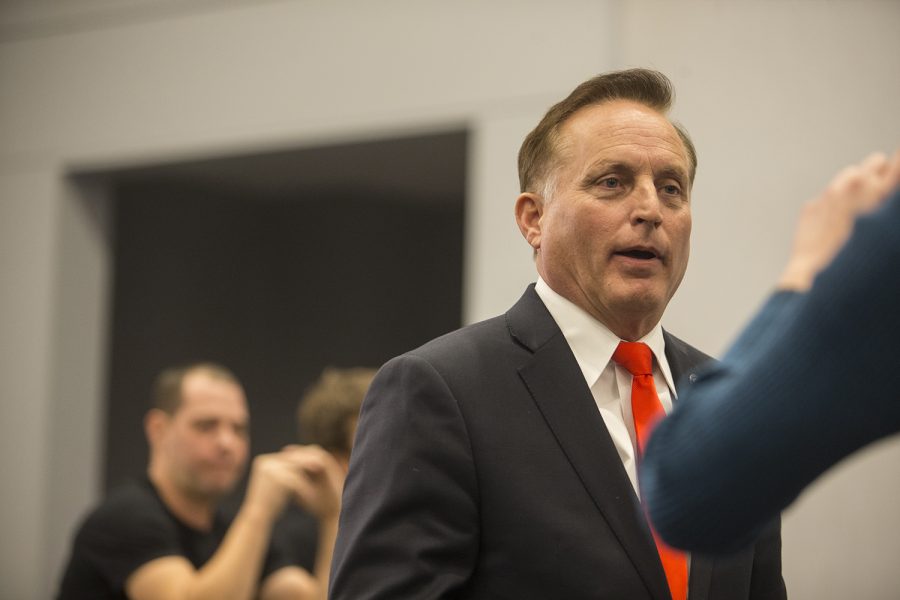Guest Opinion: Celebrating the anniversary of women’s right to vote
Iowa’s Commissioner of Elections celebrates the centennial of women gaining access to the ballot box.
Secretary of State Paul Pate addresses members of the media at the Kim Reynolds watch party at the Hilton in Des Moines on Tuesday Nov. 6, 2018.
June 26, 2019
Throughout its history, Iowa has been a place in which women break barriers. Time after time, Iowa women have shown if they set their minds to something, work hard, and believe in themselves, they can accomplish anything.
On July 2, we will celebrate the 100th anniversary of Iowans ratifying the 19th Amendment to the U.S. Constitution. It recognized women’s right to vote.
The most powerful tool we have as citizens is the ballot. I want my three young granddaughters to remember that women were not always afforded the same rights as men. It was a long, hard struggle to obtain an equal voice in our society. Hopefully, they can gain inspiration from the women who made it happen.
One of the country’s most important leaders in the women’s suffrage movement was an Iowan — Carrie Chapman Catt. She was the only female in the 1880 graduating class at Iowa State University. After spending time as a law clerk, teacher, and superintendent of schools in Mason City, Catt got involved in the fight to recognize women’s right to vote.
Iowa women had already made history by that time. The first female elected to public office in the country is believed to be Julia Addington, who became superintendent of schools in Mitchell County in 1869. That same year, Arabella Mansfield became the first woman in the U.S. to pass the bar exam and become an attorney.
However, women’s right to vote was still denied. In 1900, Catt was elected president of the National American Woman Suffrage Association. She developed and implemented a state-by-state suffrage strategy. Dubbed the “Winning Plan,” Catt’s tireless lobbying of both congressional and state leaders eventually turned public opinion in favor of women’s suffrage. President Woodrow Wilson converted to the cause in 1918, and one year later, Congress passed the 19th Amendment. It was ratified by the states on Aug. 18, 1920.
The dream of women being able to vote was finally fulfilled because determined women such as Catt never gave up on their dream. There were setbacks and heartaches along the way, but she never lost sight of the goal and saw it come to fruition after 33 years of hard work.
In the fields of science, sports, politics, and many others, the proverbial glass ceilings across the nation have been shattered by Iowa women. Ola Babcock Miller, Iowa’s first female secretary of state, also created the Iowa State Patrol. Edna Griffin fought against the denial of service to blacks five years before Rosa Parks refused to give up her seat on the bus. Mary Beth Tinker successfully fought for students’ rights to free expression. Denise Long was the first woman in history drafted by NBA team. Mary Louise Smith was the first female elected chair of the Republican National Committee. Peggy Whitson has spent more time in space than any other American.
The list goes on and on. In the past five years, Iowa women have shattered several of our state’s political glass ceilings. In 2015, Joni Ernst became Iowa’s first female U.S. senator. That same year, Linda Upmeyer became our first female speaker of the House. Last year, we elected a female governor and two females to the U.S House of Representatives for the first time.
The possibilities are endless for what women can achieve. Countless Iowa women led the way. All you have to do to follow in their footsteps is work hard, believe in yourself, and dream big.
— Paul Pate
Secretary of State and Commissioner of Elections of Iowa



